- Customer Care +91 8800900271
- About Us
- Contact Us
- Sell Your Brand
- International Orders
- Disease
- Homoeopathy
- Willmar Schwabe Germany
- SBL
- REPL
- Dr. Reckeweg
- Willmar Schwabe India
- Bakson's
- Hapdco
- Lords
- Allen
- B Jain
- Adven
- Dr. Wellmans
- Indo German
- Medisynth
- Wheezal
- Adel
- HSL
- New Life
- Bioforce
- JVS
- Hahnemann Laboratory (HL) Calcutta
- Bios Laboratory (BL)
- Parul Homoeo Laboratories (PHL)
- Allen Calcutta
- Bhandari
- Dr. Bhargava
- PHBL
- SSL
- Dr Vijay's
- Natcure
- Kent Pharmaceuticals
- Similia
- Ralson
- St. George
- SHL
- Burnette's Homoeopathy
- Purusottam Homeo Bikas Laboratory (PHBL)
- Father Muller Pharmaceuicals
- National Homoeo Laboratory
- EL Dr. Lal Singh Expertise
- Dr Patel's
- Bangalore Bio-Plasgens (BBP)
- Boericke Research Laboratory (BRL)
- Ayurveda
- Unani
- Health & Fitness
- Books
- Veterinary
- Online Consultation
- International Orders


Children in the safe hands of Homoeopathy !

- By: Dr Rijul Jussal
- Profession: BHMS
- Category: Homoeopathy
- Apr 13, 2021
With the changing lifestyle in today’s era, the habits and patterns of the growing children are changing too. Owing to new adoptions in the ways of living, the children today are not as healthy as in the past and their immunity level seems to be comparatively weaker.
Although, immune system in children is not fully developed, it is only natural for children to fall ill more frequently than adults.
It sometimes become quite a challenge for the parents to keep their children away from one or the other infection for long, as they seem to be falling ill more often than not. So, it is important that children are well protected and treated for various illness in time.
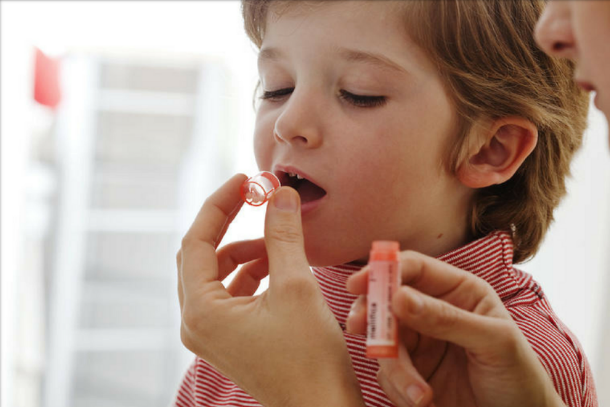
Homoeopathic medicines are not only free from adverse side effects but also stimulate child’s immune or defense system.
On the other hand, convention medicine may do more harm than good to the tender health of children and may produce a number of side effects.
Below are few common ailments of children which can be treated successfully in Homoeopathy along with indication of medicines:
- Infants often swallow air while sucking milk, which causes flatulent colic. Besides, when child is weaned to solid diet, gas is formed, which may cause colic.
- Presence of gas in intestine leads to griping colic. Due to this, the infant becomes irritable and cries unmanageably.
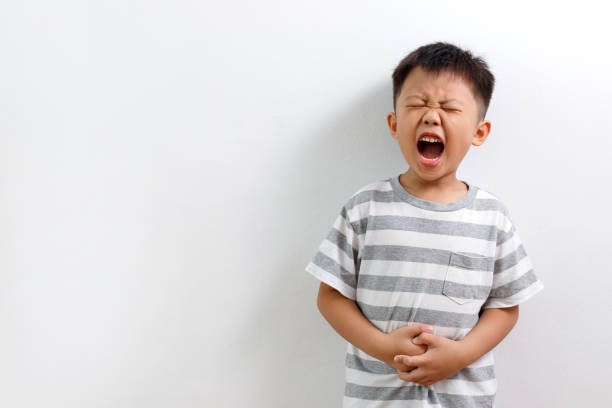
Here, homoeopathy comes to child’s rescue with the following medicine:
- Chamomilla 30: This medicine is given when child is bad tempered or irritable. He/she wants to be caried or pushed in stroller. Tummy is distended with wind. There is a tendency for diarrhoea which is green, mucoid and offensive
- Pulsatilla nigricans 30: It is indicated for colicky pain when a child is weaned on other foods beside milk. Child cries pitifully, unless he/she is picked up. Wants to be cuddled all the time. In diarrhoea along with colic, the characteristic is that no two stools of child are alike in colour and consistency.
- Nux Vomica 30: When child becomes irritable and develops gastro-intestinal disorders due to overfeeding. The child usually complains of pain in stomach some time after eating but not immediately.
- Magnesia phos 6X: Use this medicine when your child is feeling better by lying on abdomen and by warmth. The colic, in this case, results due to excessive gas in stomach
- If a child passes less than 3 stools per week and there is associated difficulty in passing them, then it is called constipation.
- A child may pass stool daily but if there is accompanying difficulty in passing it, then also it is called constipation.
- The first step in correcting constipation in your child is making sure that he or she gets enough fibre. Fibre is bulky and holds water in stool, making it softer and easier to pass.
- Eating more fruits, raw vegetables, whole-grain breads and cereals along with drinking plenty of water can also help.
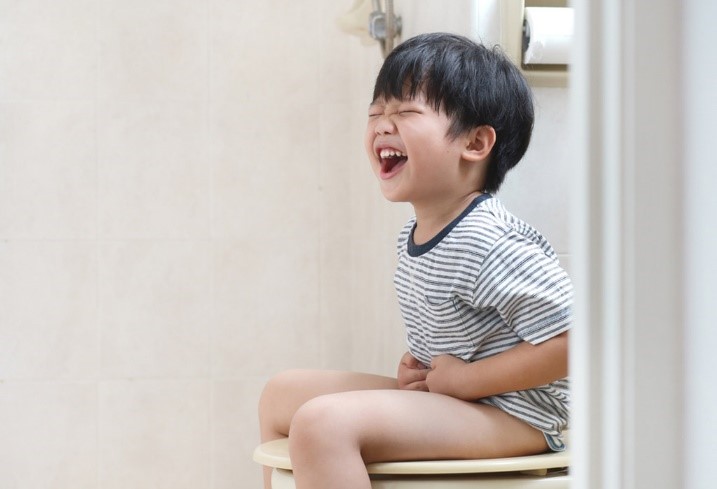
- Alumina 30: Alumina is given when child is not able to expel stool due to inactivity of rectum. Child has to strain a lot even when stool is soft. He has abnormal cravings for chalk. Charcoal and other indigestible things.
- Nux Vomica 30: You can think of this medicine when child complains of a constant, but ineffectual urge for passing stool. Even after trying hard, the child is able to pass only a small quantity each time. The stools are unsatisfactory and unrefreshing. The child usually has irritable mood and gets angered easily.
- Bryonia alba 30: Very useful medicine for constipation in children with hard and dry stools. The stool is thick, sometimes even bloody due to excessive straining.
- Opium 30: Opium is 0ften used when there is absolute inaction of rectum, with no desire for stool. The child passes stool infrequently, which are round, har, black and ball like in shape.
- Cuprum metallicum 30: For constipation of bottle-fed babies, with spasmodic colicky pains and black, painful stools, Cuprum metallicum is generally indicated.
- Diarrhoea is a term used for loose, watery stools occurring more than three times in one day.
- Diarrhoea can cause dehydration, which means lack of enough fluid in the body to function properly.
- Main treatment of diarrhoea in children is rehydration. ORS (Oral Rehydration Solution) should be given to all children with diarrhoea to keep the body hydrated.
Signs of dehydration
- Dry mouth and tongue
- No tears when crying
- No wet diapers for 3 hours or more
- Sunken abdomen, eyes or cheeks
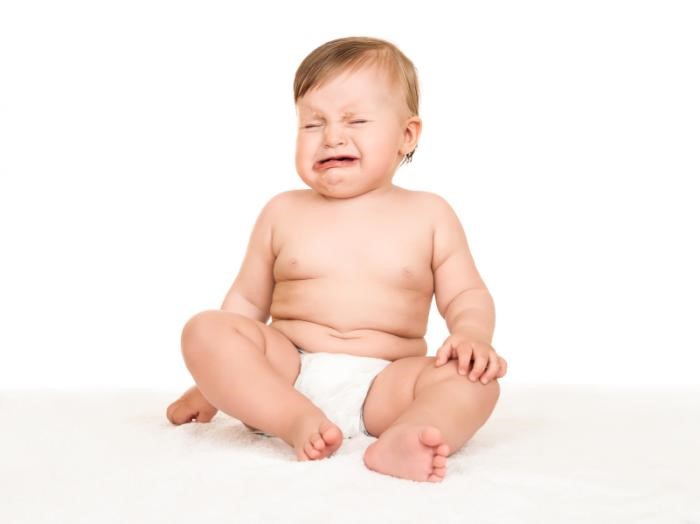
Along with ORS, right homoeopathic medicine can help check the problem from worsening:
- Aethusa cynapium 30: It is given for diarrhoea in the children who cannot tolerate milk. They vomit milk as soon as it is taken. Stools are watery, greenish and preceded by stomach pains. Great weakness and drowsiness follow after passing stools. Absence of thirst and desire to cover up warmly are other important symptoms
- Pulsatilla pratensis 30: When diarrhoea results due to intake of cold foods or drinks, ice-creams or fruits, Pulsatilla should be your medicine of choice. Stools are watery, greenish-yellow, very changeable and are passed soon after eating.
- Arsenic album 30: Diarrhoea occurring after eating fruits or tinned food calls for this medicine. It is also given when there is associated vomiting, which gets worse after eating or drinking. The child becomes extremely restless and anxious and takes little sips of water frequently.
- Magnesia carbonica 30: Consider this one when there is diarrhoea with frothy, green, sour smelling stools. The nursing child passes milk undigested.
- Podophyllum peltatum 30: Podophyllum is given for diarrhoea that occurs during teething and after eating. It is generally accompanied by profound weakness and is worse in the mornings. Green, watery, profuse stools with a foetid odour and undigested particles are other important indications.
- Infections of throat (Larynx), or the main airway (Trachea), or the airways going into the lungs (Bronchi) are collectively called URTI (Upper Respiratory Tract Infection).
- Besides medicinal treatment, adequate test and taking plenty of fluids help in overcoming the problem.
- Most URTIs are due to some viral infection. These infections should be treated to avoid further complications.
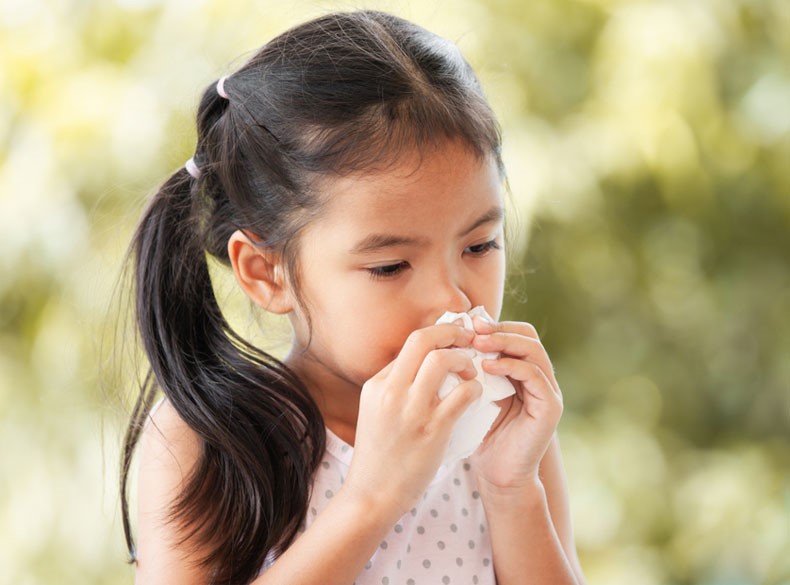
- Antimonium tart 30: It is very useful for the noisy, rattling cough, without expectoration, which causes rapid and difficult breathing. Tongue is coated thick white. Thirstlessness and vomiting are usually associated.
- Bryonia alba 30: Dry and spasmodic cough, aggravated by slightest movement is the chief characteristic for this medicine. Child holds his chest firmly every time he coughs. Fever, constipation and dry tongue with thirst for large quantities of water are other important symptoms.
- Ferrum phos 30: It is usually indicated for dry, spasmodic and painful cough, with expectoration sometimes streaked with blood. Fever is always present with and and weak pulse.
- Ipecacuanha 30: Constant coughing, often associated with retching and vomiting. Cough with rattling of mucus in chest. Tongue is clean and child is thirstless.
- Sambucus nigra 30: Dry coryza of infants; nose dry and completely obstructed, preventing breathing and nursing. Difficult breathing, child awakes suddenly nearly suffocated; can inhale but cannot exhale. Feels suffocative, worse about midnight with spasm of chest.
- Spongia tosta 30: Cough, dry, barking, worse taking sweets, cold drink, lying with head low, dry cold winds; better eating or drinking warm things.
- Parents mostly consider bedwetting as the child’s fault resulting due to his or her laziness to get up in the night. But this is not usually the case. Parents need to realise that bedwetting is involuntary.
- It is assumed that every young child will wet the bed upto some age. Therefore, the term ‘bedwetting’ is usually reserved for children (and adults) who are well beyond the age (usually 7 years), at which night-time bladder control is expected.
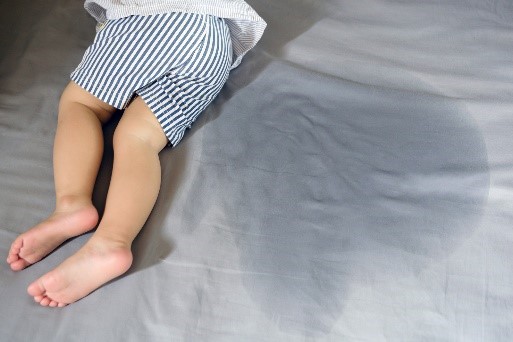
A few homoeopathic medicines that have a good role in treating bedwetting in children are:
- Belladonna 30: Belladonna is given when child’s sleep is deep and stuporous and, therefore, the child is not able to sense the urge for urination to wake up. Child is sensitive to change of weather or being chilled.
- Causticum 30: Child wets the bed during the first sleep and his problem generally aggravates in dry, clear weather.
- Equisetum hyemale 30: A very useful drug for habitual bed wetting in children. The child dreams of urination; sometimes gets up horrified after nightmares in his dreams.
- Kreosotum 30: The urine of the child is offensive. Child dreams of urination while sleeping and passes urine involuntarily.
- Embelia ribes 30: A very useful medicine for bedwetting due to pin worms.
To pick the right medicine, match the symptoms of the medicine with the problem you are suffering from. The medicine with majority of symptoms similar to yours will be the right choice for you.
Children: 5-6 drops in some water, 3-4 times a day, for 2-3 days
Adults: 9-10 drops in some water, 3-4 times a day, for 2-3 days
- Medicine should be taken after cleaning the mouth and preferably in empty stomach.
- Strong smelling substances like onion, garlic, etc. should not be taken within half an hour before and after taking the medicine.
- If improvement occurs within 2-3 days, medicine should be stopped.
- If patient doesn’t improve within 48 hours or become worse at any time, then a qualified homoeopathic doctor should be consulted.
Get the Latest Updates Blog
 Click here to Pay
Click here to Pay
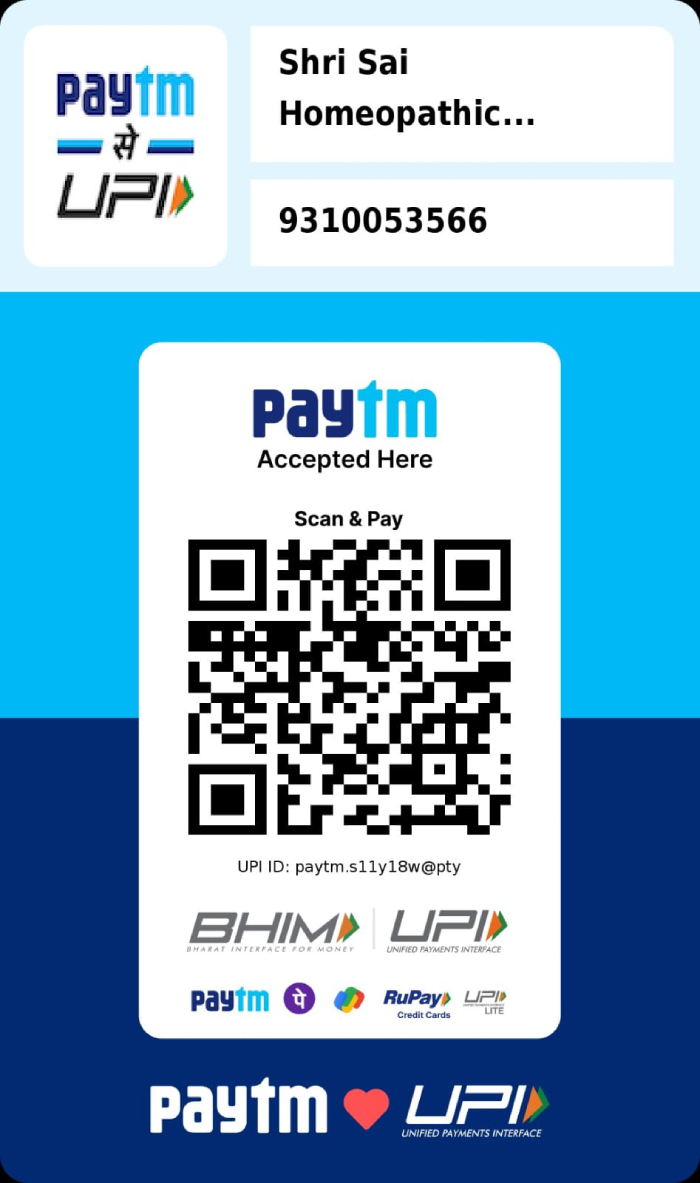
Please send the screenshot at 880 090 0271

